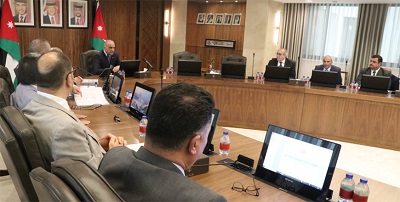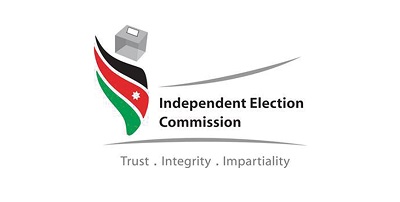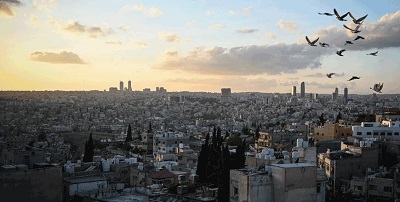Tunisia continues to struggle post-revolution - By Christian Chesnot, Al Arabiya
Seven years ago, the Jasmin revolution triumphed in Tunis and President Ben Ali flew to exile in Saudi Arabia. It only took a few weeks to topple the regime. At the time, protesters took to the streets to demand “dignity”, “employment” and “freedom”.
In 2018, the claims remain mostly the same as evidenced by latest events. Today, Tunisians are free to elect their political representatives. Above all, the wall of fear that had long incarcerated them has fallen. This is undoubtedly the main achievement of the 2011 revolution.
Employment woes
But it takes a lot more to stabilize a country and especially to give hope to a disenchanted youth. What do young Tunisians ask for? The same as anywhere in the world: quality education, work, decent wages to build a family and a future. For many of them, it’s still an unreachable dream.
The transition from a police state to a fledgling democracy is not simple. It takes a lot of time for it to gather pace, especially as the political agenda does not move at the same pace as the economic and social agenda does. We can start a revolution overnight, but giving people jobs and building a strong economy takes years.
ALSO READ: Tunisian protests mark seven years since revolution
The Tunisian state has responded to the social demands of the post-revolution era by increasing employment in the civil services. Today, we can see both the achievements and the pitfalls of this policy.
The Tunisian economy is undiversified and relies mainly on the tourism sector. However, the latter was hit hard after a wave of terror attacks struck the country in 2015, including the famous Bardo Museum attack in Tunis.
Austerity drive
The International Monetary Fund granted a 2.4 billion euro loan to Tunisia in 2016, provided it undertakes an austerity program to reduce budget and trade deficits.
By following the conditions too strictly – hiking the VAT tax, real estate related taxes, social contribution taxes, etc- Tunisian authorities have probably gone too far in their austerity program.
The reaction of the youth has been immediate and violent. This is not a new revolution but a warning shot. Basically, these events tell us that freedom without bread is not worth much.
ALSO READ: Seven years after Arab Spring, how Tunisia has charted its own course
One of the keys to democracy is a prosperous middle class. When it becomes impoverished, it is the rules of the democratic game that click with the rise of populism.
It is for this reason that the European Union should do much more to support Tunisia to carry out its painful but indispensable reforms. It will also be necessary for Tunisian authorities to tackle once and for all the disparities of development between the important coastal touristic cities and the interior cities which feel abandoned by the public authorities. Otherwise, new social upheavals will recur like the rising tide.
Security is the sine-qua-non
To respond to these manifestations of desperation, a purely security response will not be enough. Yes, Tunisia needs stability. It is a sine qua non even for the tourism sector because the challenges to security are multiple: Libyan chaos on its doorstep, return of the jihadists from the Syrian-Iraqi front, etc.
The country needs an efficient and effective security apparatus to thwart attempts at destabilization. Above all, it needs a real development plan that ensures a future for the youth. Words and slogans are not enough anymore. Tunisia is today in an uncomfortable situation: the exhilarating hours of the revolution are already distant but the emergence of a democratic and prosperous society still seems inaccessible.
Latest News
 'Sinwar Above Ground': Hamas official's revelation shocks Israeli Occupation
'Sinwar Above Ground': Hamas official's revelation shocks Israeli Occupation US president signs bill to provide new aid for Ukraine
US president signs bill to provide new aid for Ukraine Prime minister directs government to support IEC ahead of upcoming elections
Prime minister directs government to support IEC ahead of upcoming elections Parliamentary elections for 20th Lower House to be held on September 10 – IEC
Parliamentary elections for 20th Lower House to be held on September 10 – IEC Amman Chamber of Commerce says GDP grows by 4.4% in 2023
Amman Chamber of Commerce says GDP grows by 4.4% in 2023
Most Read Articles
- More than 100 arrested at US university pro-Palestinian protests
- Irish foreign minister visits Palestinian refugee camp in Amman, vows support to UNRWA
- King, French president discuss regional developments
- Senior Hamas official says movement is “awaiting response” in ceasefire negotiations
- Jordan remembers Queen Zein
- Ahead of feared Rafah invasion, Palestinians mourn bombardment dead
- US says downed Houthi anti-ship missile, four drones
- JAF carries out six more airdrops of aid into Gaza
- Cassation Court upholds over 3-year sentence for drug dealer
- Jordan completes human rights review before council’s evaluation Jordan completes human rights review before council’s evaluation